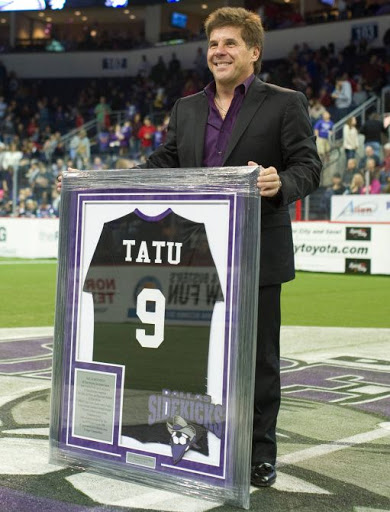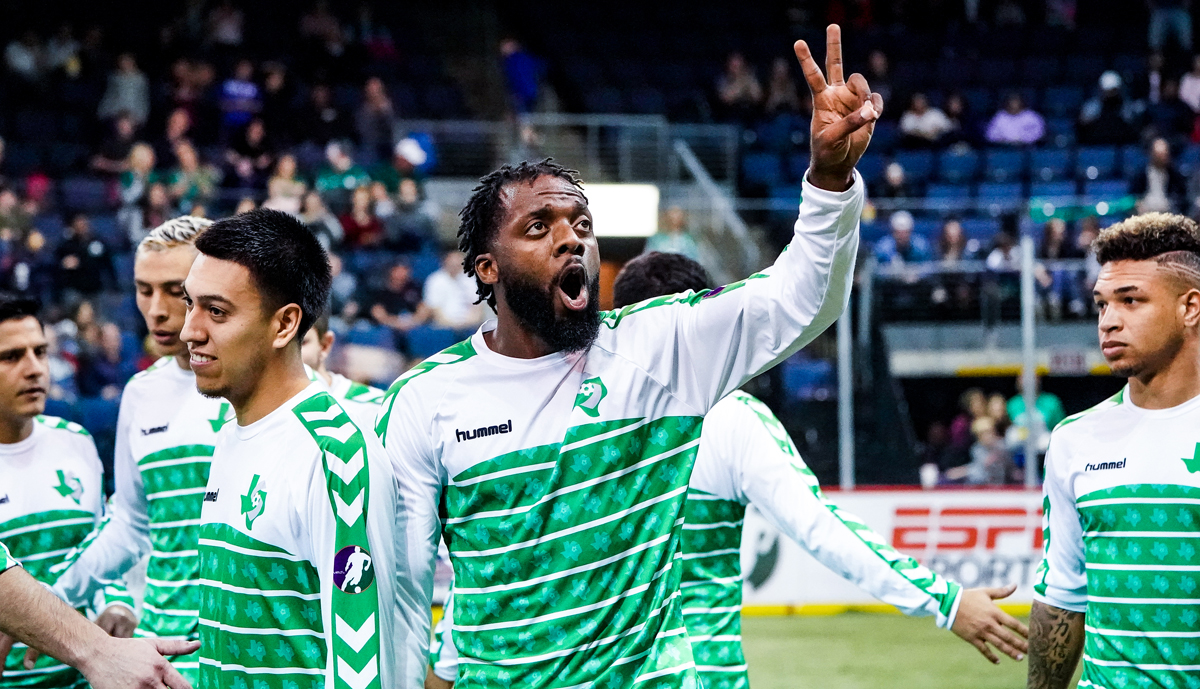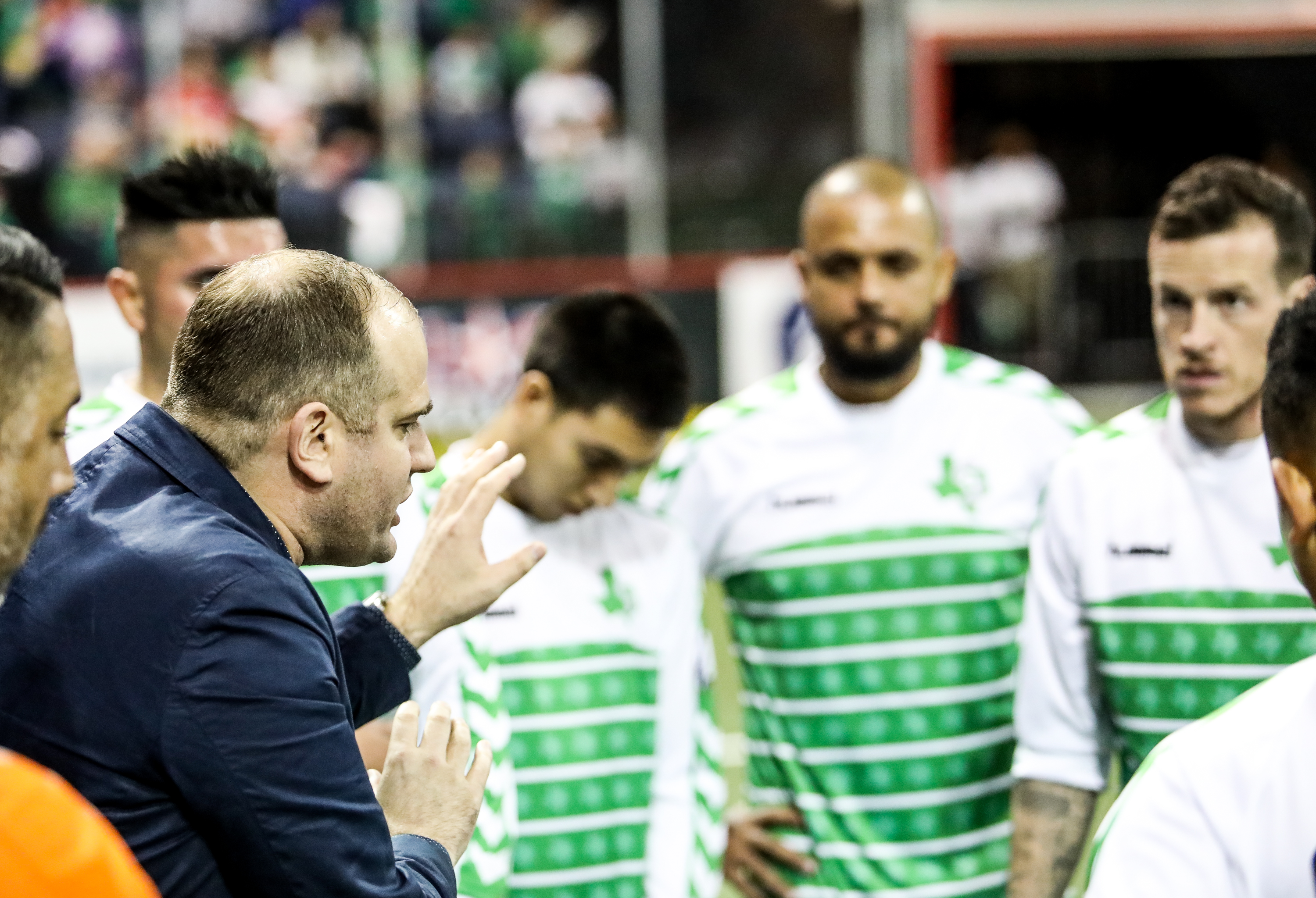It’s November, so it’s time for me to wake up and talk about the Sidekicks again.
Tatu‘s signing as the inaugural head coach for the Mesquite Outlaws last summer was hardly a surprise but it signaled a change in the local indoor soccer weather. The man is easily the most legendary name in Indoor/Arena Soccer history in the state of Texas – and possibly the entire US – and brought with him, not just a wealth of experience, but also deep connections with the Metroplex.

In fact, during his tenure with the Sidekicks, Tatu served in the same role with the same staff he now fills with Mesquite. He even brought over a number of players from the Sidekicks, including some of their most prominent names from recent years, leading to the Outlaws last season resembling the Sidekicks under Tatu more than the Sidekicks themselves did.
So why did Tatu leave the Sidekicks in the first place, and what would motivate so many names to depart the organization along with him?
It all dates back to 2015, following the team’s third season post-relaunch when Tatu once again led the Sidekicks into the playoffs.
Leading into the 2015-16 season, Tatu quit his role as head coach/general manager and filed a lawsuit against the team, suing them for $109,000 in unpaid wages and appearance fees. The lawsuit stated that he hadn’t been paid in over two years. The following month, the lawsuit was settled and the team was sold, in part to cover the money owed to Tatu.
Under the new ownership group, Sidekicks Sports Management, Simon Bozas was appointed general manager and head coach, serving as Tatu’s direct replacement. Bozas kept the rest of the coaching staff in place, and kept Tatu on as an ambassador for the organization, although without a place on the coaching staff.
The team’s performance immediately declined, with the team finishing 7-13 in Bozas’s first two seasons in charge.
A 1-year hiatus followed with the team sitting out the 2017-18 season, in which ownership of the team once again changed, with Michael Hitchcock joining Bozas as a co-owner of the team. The team’s fortunes improved for the 2018-19 season, albeit without making the playoffs and finishing just 9-15.
At the conclusion of the Sidekicks’ return season, the Mesquite Outlaws were launched and immediately hired Tatu. What followed was a mass exodus of Sidekicks veterans to join him in Mesquite. Jamie Lovegrove, VcMor Eligwe, Cody Ellis, Mike Jones, Shaun David, and Anthony Powell all joined the Outlaws from the Sidekicks.

At the time, players expressed not just a desire to play for Tatu again, but also the desire to play for someone other than Bozas.
In conversations with several players and staff, players expressed frustrations with Bozas’s approach to the indoor game. Drills would avoid the use of the boards, several common and effective tactics under Tatu were abandoned, and Bozas seemed to struggle in bringing his soccer background indoors.
This shows clearly in the results from the COVID-shortened 2019-20 season. The rookie Outlaws finished 7-14, while the Sidekicks slumped further to end the season 3-19. Former Sidekicks led both attacking and defending statistics for the Outlaws, and the Outlaws won 3 out of 4 games between the two clubs.
Off the field, the Sidekicks under Bozas saw a sharp drop in attendance, averaging 2332 in his four seasons compared to 4227 in three seasons under Tatu. Last season, they drew worse than the brand news Outlaws.
With Bozas as both head coach and co-owner, he ultimately is one of the few people responsible for performance on and off the field, and neither has been positive under his reign.
In looking at other possible explanations for the struggles of the organization, it’s difficult to single anything else out. Few variables have remained constant for the Sidekicks over the past five years, with Bozas standing out for his tenure, and the other prominent names seem unlikely to be a source of potential problems.
His co-owner partner Michael Hitchcock comes from an extensive soccer background with several proven successes around the Metroplex. Both the Fort Worth Vaqueros and Denton Diablos have emerged as well-run and well-supported sides in the NPSL. Hitch’s work as a consultant for the Mesquite Outlaws helped them make a strong start in the MASL.
Many of the other staffers at the Sidekicks have also worked for Hitch’s team in Fort Worth – or elsewhere in local soccer – and achieved successes there.
Bozas repeatedly stands out as both a source of frustration from players and one of the few major decision-makers to be present in every struggling season.

And therein lies a key problem. Bozas is unlikely, as co-owner, to relinquish his role as head coach, and it’s essentially impossible for the other co-owners to replace him in one role without buying him out of the other.
Bozas did give up his position as general manager, with another local soccer name Jesse Llamas now serving as general manager and director of operations.
But regardless of the team assembled by Llamas, if Bozas continues to struggle as a coach in the MASL, the team’s fortunes likely won’t improve.
Speaking with numerous longtime fans of the Sidekicks, Bozas has developed a strongly negative reputation, and he’s definitely lost the support of the core supporters, but in this situation, fan pressure likely won’t have any impact unless it brings with it a potential buy-out of Bozas’s ownership stake.
And, speaking as a fan of the team myself, that stinks.
